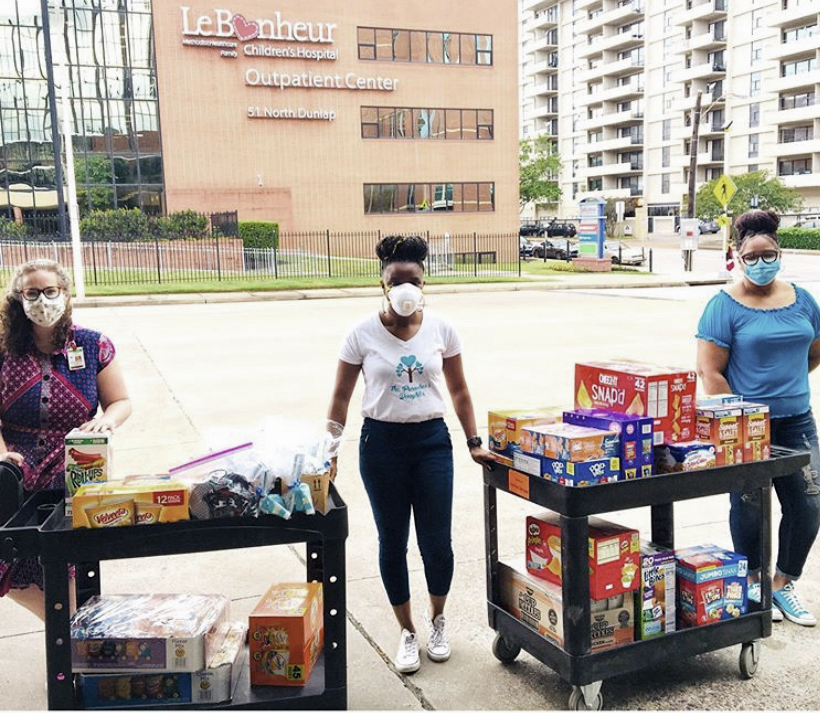“Growing up my father always emphasized that it was more important how you lived out the Gospel of Christ than it was for you to just say you are a Christian,” said Shandria Carter, founder of The Preacher’s Daughter, Inc.
The Preacher’s Daughter, Inc. is a non-profit that focuses on strengthening neighborhoods and improving the quality of life for citizens of the Memphis metropolitan community through outreach and community service projects.
Shandria Carter grew up in a strict Christian and military (Navy) home at the Guantanamo Bay Detention Camp (Git-Mo), a notorious United States military prison located on a naval base in Cuba. Her father served as the Pentecostal chaplain on the island until he was transferred to Navy operations in Millington.
“I founded The Preacher’s Daughter, Inc., as a means of embracing my heart to serve others in dire situations, as well as to honor my father, who passed away from pancreatic cancer six years ago (on May 12),” said Carter.
Three years ago, Carter started celebrating her birthday through #ShansBdayProject, where she serves meals, coffee and gives parents sweet treats at Le Bonheur Children’s Hospital.
“Since 2009, I have been serving at Le Bonheur. Initially, it was via the now defunct, Habitat for Hope,” said Carter.
On Friday (May 8), a day before Carter’s birthday, she continued to go through with her third annual #ShansB- dayProject, by delivering food/snacks, face masks and toiletry bags.
Because of social distancing requirements resulting from the COVID-19 pandemic, #ShansBdayProject had to rearrange its original format.

“In previous years, we catered a gourmet meal from a restaurant and served families, there is always three-four social workers (outside of myself) there who are ready to provide services to families in need, then there’s a team to help occupy siblings so that parents can enjoy the meal provided, and (upon their request) we have people there who pray with the families,” Carter said.
Despite all of the changes, their mission remained the same — to serve.
“We specifically served the neurology floor because February marked 20 years since my older brother, Quantel Carter, had successful brain surgery there,” said Carter. “This was a way of honoring his life, but also a reminder to myself that God had given me another year to love and serve others.”
“This year’s #ShansBdayProject took more flexibility and intentionality than the past two years. I didn’t want The Preacher’s Daughter to just do a project to say we did something, but instead wanted to ensure that it was impactful,” she said.
“All the same, once visitors were no longer allowed in the hospital, we had to become creative in how we used the money that was raised for #ShansBday- Project.”
One of the big things the non-profit intentionally addresses is food insecurity.
“A lot of times people don’t think about the cost of eating out when you have a relative in the hospital. However, it’s expense,” Carter said. “So, as we coordinated with the Volunteer Services, we were intentional about helping address this need, just as we had in previous years.”
Carter works as a social worker at Advance Memphis.
“The organization has been around for 21 years, and we emphasize walking alongside clients in real time,” said Carter. “I teach our clients how to get and maintain a job. The curriculum is Bible based and was developed in South Memphis.”
She recently started a program there called Thrive. “It seeks to teach coping skills and address mental health issues that may serve as a barrier to our clients being able to keep a job,” she said.
“My goal is to be the hands and feet of Christ in a very practical and intentional way — through service,” said Carter. “I want to be, to these families, the support system my family had when my brother was being treated.”